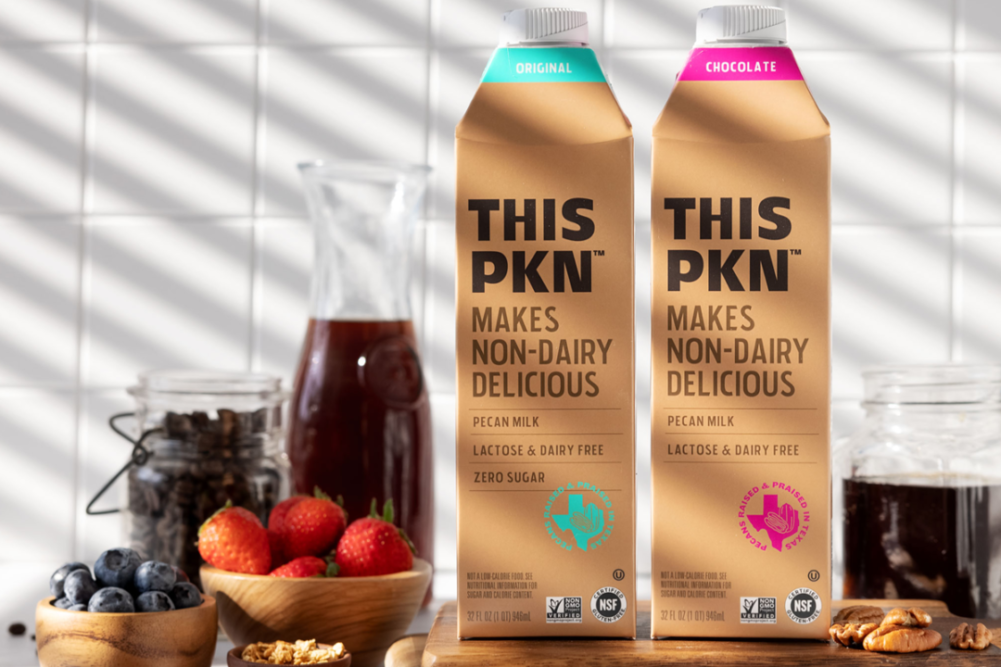AUSTIN, TEXAS — Pecans represent an untapped opportunity in the alternative milk category, which reached $2.5 billion in retail sales in 2020, according to data from the Plant Based Foods Association. While plentiful options have cropped up in recent years, pecans offer superior taste, nutrition and environmental benefits, said Laura Shenkar, founder and chief executive officer of Lifestock, a company dedicated to developing sustainable foods.
Last year, Lifestock launched THIS PKN, a direct-to-consumer brand of shelf-stable alternative milk made with Texas-grown pecans and no added sugar. The product features a “rich, buttery taste,” according to the company, with omega-3 fatty acids, antioxidants and essential nutrients including zinc, potassium and manganese. Offerings include original and chocolate.
Pecans are the only commercial tree nut indigenous to the United States, Shenkar said.
“Archeological records show they go back as far as 65 million years,” she said.
As a native crop, pecans are resilient to droughts and floods. They are not dependent on water imported from dwindling remote sources, she added.
“Plant-based milks are always more sustainable than cow’s milk,” Shenkar said. “If you go beyond that, you start to look at how sustainable. From a climate perspective what is the additionality? How much greenhouse gas does it take to get you your Oatly in the morning? How much water did it take? How did the ground look afterwards?”
Prior to launching the company, Shenkar partnered with corporations, farmers and farmland investors to identify water conservation strategies. More than five years ago, she traveled to San Saba, Texas, the self-proclaimed “world capital of pecans,” where she discovered the role of the pecan as “an anchor for native plant ecosystems, water sustainability and regenerative agriculture.”
“What we’re trying to do is create a consumer brand that enables everyone to say, ‘I really like that. I’m going to make a choice to have that versus my almond milk or my oat milk because I love it. It tastes great. It’s good for me. And it supports Texas ecosystems,’” Shenkar said.
Plant-based milk is the largest and most developed plant-based category, accounting for 35% of the plant-based total foods market. The category grew 20% in 2020, twice as fast as cow’s milk, and is purchased by 39% of 49 million US households, according to the Plant Based Foods Association. Plant-based products comprise 15% of the milk category.
“This is a very competitive space,” Shenkar said. “It’s ludicrous to think we need one more non-dairy milk. You go to the store today, and they have 26 — why on earth would people want one more? This is a very hard thing, especially if you’re saying this is a nut that has no history in that aisle.
“The nut needs to speak for itself, and I think it does.”
Future product development may explore the possibilities of mesquite and agave, also indigenous crops that may be used to sweeten the pecan milk, Shenkar said. Additionally, she noted, the brand may offer milk made from pecans grown in other states, such as Tennessee and Georgia.
“Long term we’re looking at native plants that provide nutritionally dense foods that taste amazing and are also good to the land,” she said.

